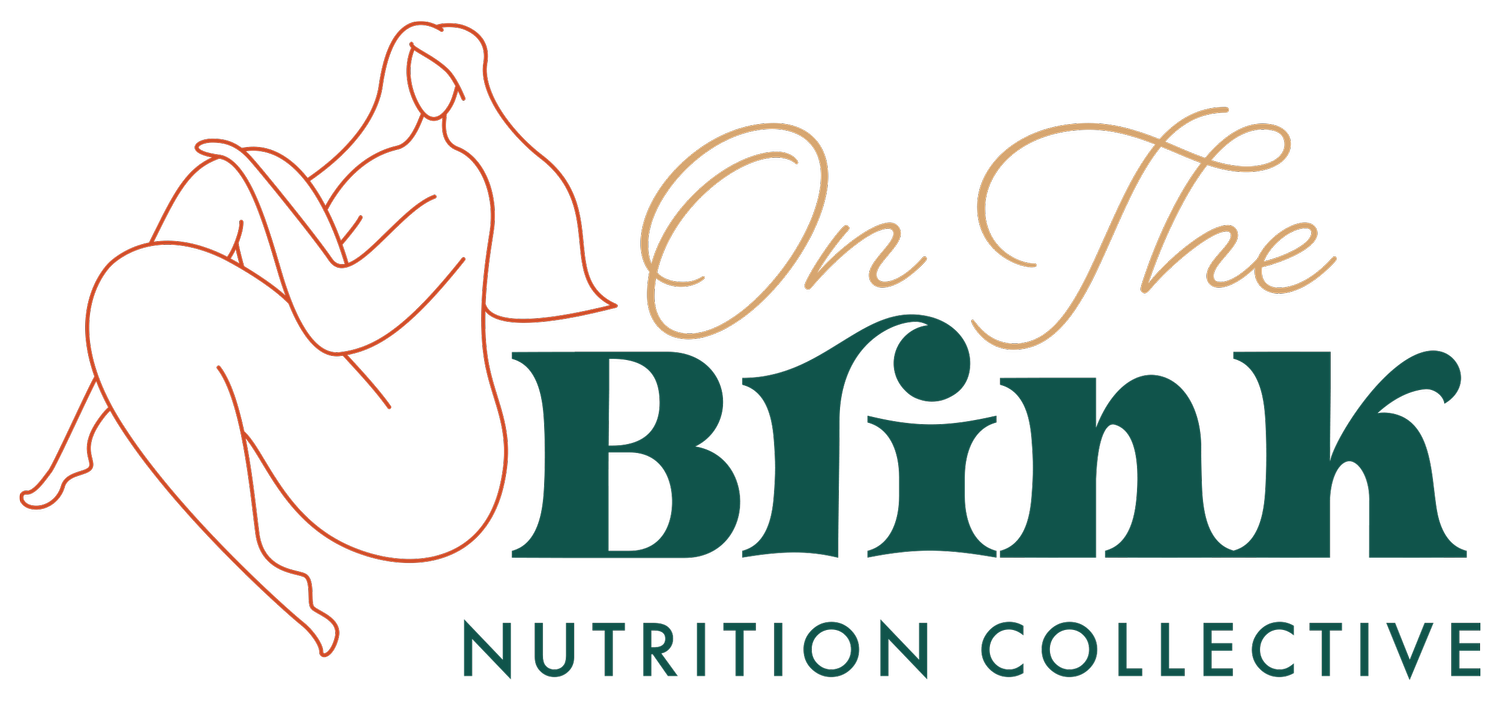Cutting Through the Noise: Recognizing and Avoiding Diet Myths
Overwhelmed by conflicting diet advice? Discover how to cut through the noise and identify nutrition misinformation. Learn practical tips for spotting diet myths, decoding social media nutrition advice, and embracing evidence-based approaches to health.
Understanding Cholesterol Management: A Weight-inclusive, Non-Diet Approach
At On The Brink Nutrition, we're here to simplify cholesterol. Amidst confusing advice, we provide a holistic, non-restrictive approach to heart health. Discover the truth about 'good' and 'bad' cholesterol, the role of genetics, and how balanced nutrition—without the pressure of weight loss—supports your wellbeing. It’s time to nourish your heart with care, not fear.
Incretins 101
Learn how incretin hormones like GLP-1 and GIP play a vital role in regulating insulin, glucose, and Type 2 Diabetes management.
How the Human Body Uses Sugar: Understanding Normal Function vs. the Impact of Diabetes
Discover how the body processes sugar, the impact of Type 2 Diabetes on carbohydrate metabolism, and the role of GLP-1 agonists in diabetes treatment, explained by weight-inclusive Registered Dietitians using the Health At Every Size® (HAES®) principles to promote health equity and access to quality healthcare for people of all sizes.
Considerations for Care: Blood Sugar Management for Type 1 Diabetics Undergoing Surgery
Managing blood sugar levels during surgery is crucial for Type 1 diabetics. This blog post provides essential guidelines to help you prepare for surgery, from preoperative blood sugar monitoring to insulin dosing adjustments and postoperative care. Learn key strategies for maintaining optimal glucose control and ensuring a smooth surgical experience by working closely with your healthcare team.
What's the Deal with Carbohydrates? Debunking Myths and Embracing Facts
Carbs often get a bad rap, but do they really deserve it? At On The Brink, we're debunking common myths about carbohydrates and explaining why they are a crucial part of a healthy diet. From understanding the difference between simple and complex carbs to exploring the pitfalls of low-carb diets, this guide will help you embrace carbs with confidence. Ready to fuel your body and mind the right way? Read on!
Cold Cereal: Not Poison. Just Food.
Cold Cereal: Not Poison, Just Food.
Is breakfast cereal really as harmful as some claim? At On the Brink Nutrition Collective, we’re debunking the myths and fears surrounding breakfast cereal. While not all cereals are created equal, they’re not poisonous or addictive. Explore how fear-based food beliefs can complicate mealtime and discover how to enjoy cold cereal as part of a balanced, satisfying diet.
Eating Well: The Missing Ingredient…Energy
Feeding ourselves is a fundamental daily task, but it's not always as straightforward as following a meal plan or having the right ingredients. Often, our energy levels play a crucial role in our ability to prepare and enjoy a meal. In this blog post, we'll explore the concept of energy levels and provide practical steps for working to restore joy, ease, and flexibility to the relationship with food.
Your body is not a problem to solve and resolve
Welcome 2024 with real intention. Leave the body-based resolutions int the past. Your body is not a problem to solve and resolve.
What Is Weight-Inclusive Medical Nutrition Therapy (MNT)?
MNT is often ordered and approved by your primary care physician or other health care provider, and is then performed by a Registered Dietitian. Depending on your individual insurance, you may or may not need a physician referral to seek MNT.
Nutrition Adequacy: When Enough Feels Like Too Much
Moving away from dieting and healing from an eating disorder asks you to learn what enough looks like on a plate and feels like in your body. Even if it’s the same five things at first. Even if it’s only the food they feel safe eating. This is about trust and adequacy.
Establishing A Regular Eating Pattern
In the work of eating disorder recovery and moving away from dieting, helping someone feel safe and supported to take in adequate nourishment is a foundational purpose of nutrition therapy. This focuses on making sense of learned food behaviors and noticing emotions that are linked to eating.
Self-Compassion: Common Humanity Versus Isolation
You are not alone, no matter how isolated you feel. Acknowledging that others are suffering may be the key to helping you find a way forward in your eating disorder recovery, work to move away from dieting, and the healing of your relationship with your body.
Self-Compassion: Self-Kindness Versus Self-Judgement
One of the pillars of self-compassion is Self-Kindness. Connecting with our “inner child” is one way we can practice self-kindness. The inner child concept in psychology is where we imagine the childhood version of ourselves and what we would say to them if we had a chance.




















